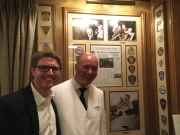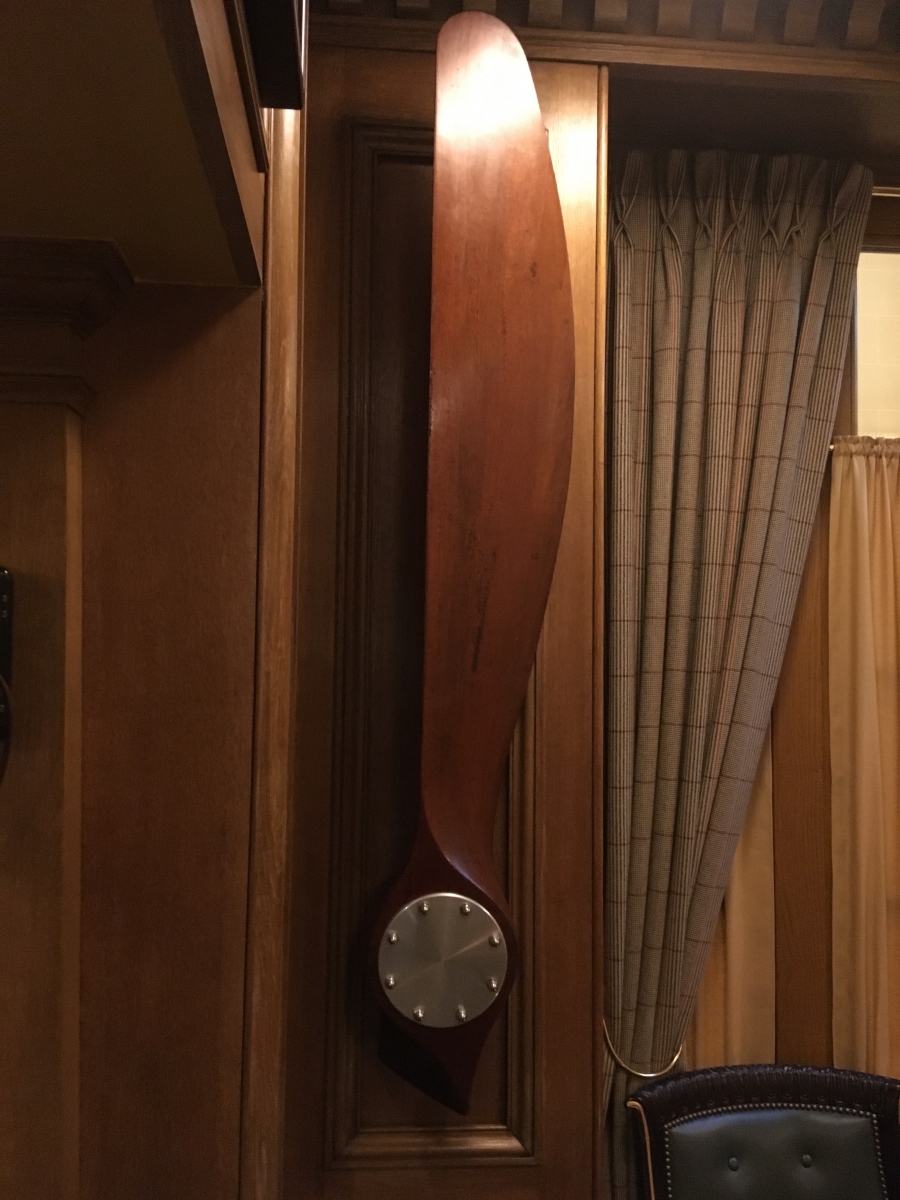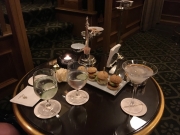
Earlier this summer, I had the pleasure of sitting down with Colin Peter Field, head bartender at Ritz Paris's Bar Hemingway, to discuss Hemingway, the history of the famous bar, and the hotel's recent renovation.
Q: Could you give a brief history of the Hemingway Bar? What was the place like before you started here?
A: The secret of the Hemingway Bar before it was called Hemingway Bar, but Le Petit Bar, was Bertin. He was a strong personality. He had his clientele; they came for him. They called it the Bertin Bar. When he retired in 1974, the bar just dwindled, dwindled, dwindled. 1979 was the last chance. The Bar Hemingway became the Bar Hemingway in 1979 with the Hemingway family here. But it was a last effort to see if they could make things work, and of course, it didn't work at all. So, that was the end of the Hemingway Bar. By 1982 it was closed.
Q: How did you come to work as head bartender here?
A: I'd written to the Ritz when I was 19, and they didn't reply. Then I got to Paris, and I wrote again and they said, "No." Then I became #2 bartender in France and #2 in the world, and they said, "Come for the interview." And then they said, "No." I was really working hard on winning competitions so that I would be accepted at the Ritz. Finally, one day they called me and said, "Is it true you have a Literature A-level? Did you specialize in Ernest Hemingway?" He was one of the persons that we did, one of about ten. They said, "Would you like to come in for an interview?" Frustratingly I was, after nine interviews, employed in 1994 because of my literature background, not because I was trying to be the best bartender alive so that I could get a job at the Ritz!
Q: All those English majors (and their parents) out there can rest easy. Jobs can be found; they just might be in bartending! You've discussed some of your own educational background. Could you talk more about the relationship between education and bartending, especially your work developing the bartending curriculum in France?
A: While creating the degree for bartenders (Meilleur Ouvrier de France; or M.O.F.) with the Sorbonne University, I was negotiating with the Ministry of Education and slowly bringing in different people to take a role in the M.O.F. I did Senate TV and gave a big talk at the Senate de President to get the degree recognized. They had initially said they would not give a degree to servers of Pastis. I said, "I don't serve Pastis. I'll serve it if you ask for it, but nobody ever asks me for it!" It was a hard fight; however, now we are the first country in the world that acknowledges, from the Ministry of Education, the profession of bartending. Everybody who works for me is or is working toward Best Apprentice of France, which means they have been or will be decorated by the President of the Senate or even the President in the Senate itself.
Q: Normally bar culture has an element of masculinity to it; however, I've noticed that a number of the people you've employed have been women.
A: I was the first head bartender to employ a female assistant. That was 1983. It was a big deal at the time.
Q: The Ritz Paris reopened just last year, after a four-year and approximately $450 million renovation. How much of that time and energy went into  refurbishing the bar?
refurbishing the bar?
A: What's marvelous is that the whole hotel was renovated, but the Hemingway bar was not. Why? When I first opened the Hemingway bar in 1994, I was on my own. Nobody thought it was going to work. I took holidays in August. So, every month of August that I was closed, I was able to redo wiring and plumbing. French hotelery, at least in my imagination, has a way of changing the codes every couple of years, which obliges everyone to rip out wiring and restart again. That is absolutely impossible in a hotel working 24 hours a day, seven days a week. But the Hemingway bar? Yes, we could do it. We were top. All our piping is modern plastic. I'd like to tell you it's solid gold...but no. All the electricity is perfectly right. We were the only spot of the whole hotel that didn't have to close. I'd say the renovation of the Hemingway bar has been limited to revarnishing the wood and updating the lighting system.
Q: The bar is like a museum only better because you can't drink a cocktail while perusing the Louvre. What is your favorite piece of memorabilia here?
A: My father's propeller. Everything you see in here is mine with the exception of the Pilar model. Everything, everything, everything you see in this bar, everything! My father was in the R.A.F. Hemingway was really attached to the British Air Force. When I finally obtained the propeller and the internet being a marvel these days, I was able to trace--through the different markings on it--what kind of plane it came from, when and where it was made, everything. It was from a Gypsy Moth that was made in France but then went over England obviously to work, as it were, and got smashed up. Q: The Serendipity is, by far, your most famous drink at Bar Hemingway, but you also invented the Clean, Dirty Martini. For the many Hemingway enthusiasts who might be coming to your bar during our conference in July 2018, what drink would you suggest?
Q: The Serendipity is, by far, your most famous drink at Bar Hemingway, but you also invented the Clean, Dirty Martini. For the many Hemingway enthusiasts who might be coming to your bar during our conference in July 2018, what drink would you suggest?
A: The Hemingway enthusiast would go, definitely, for the Clean, Dirty Martini.